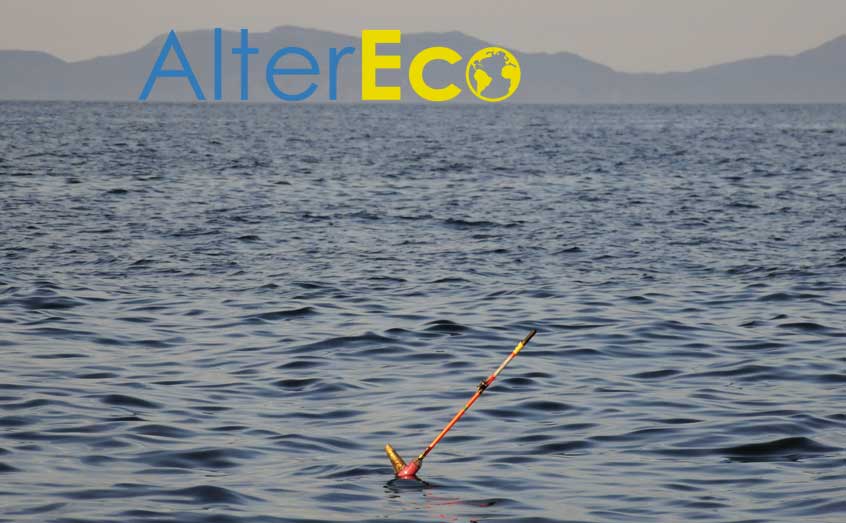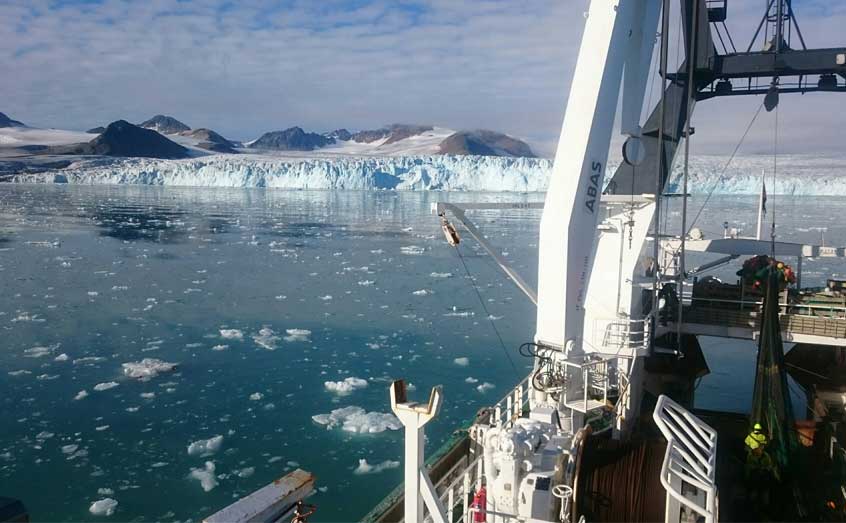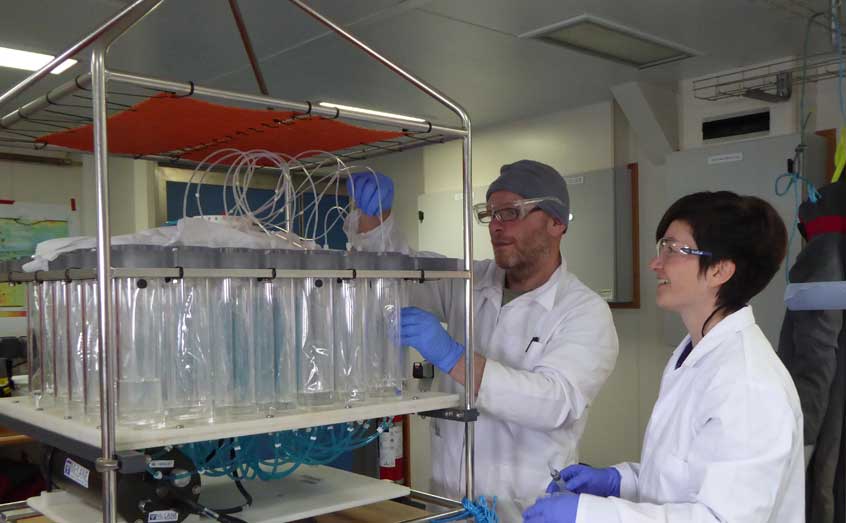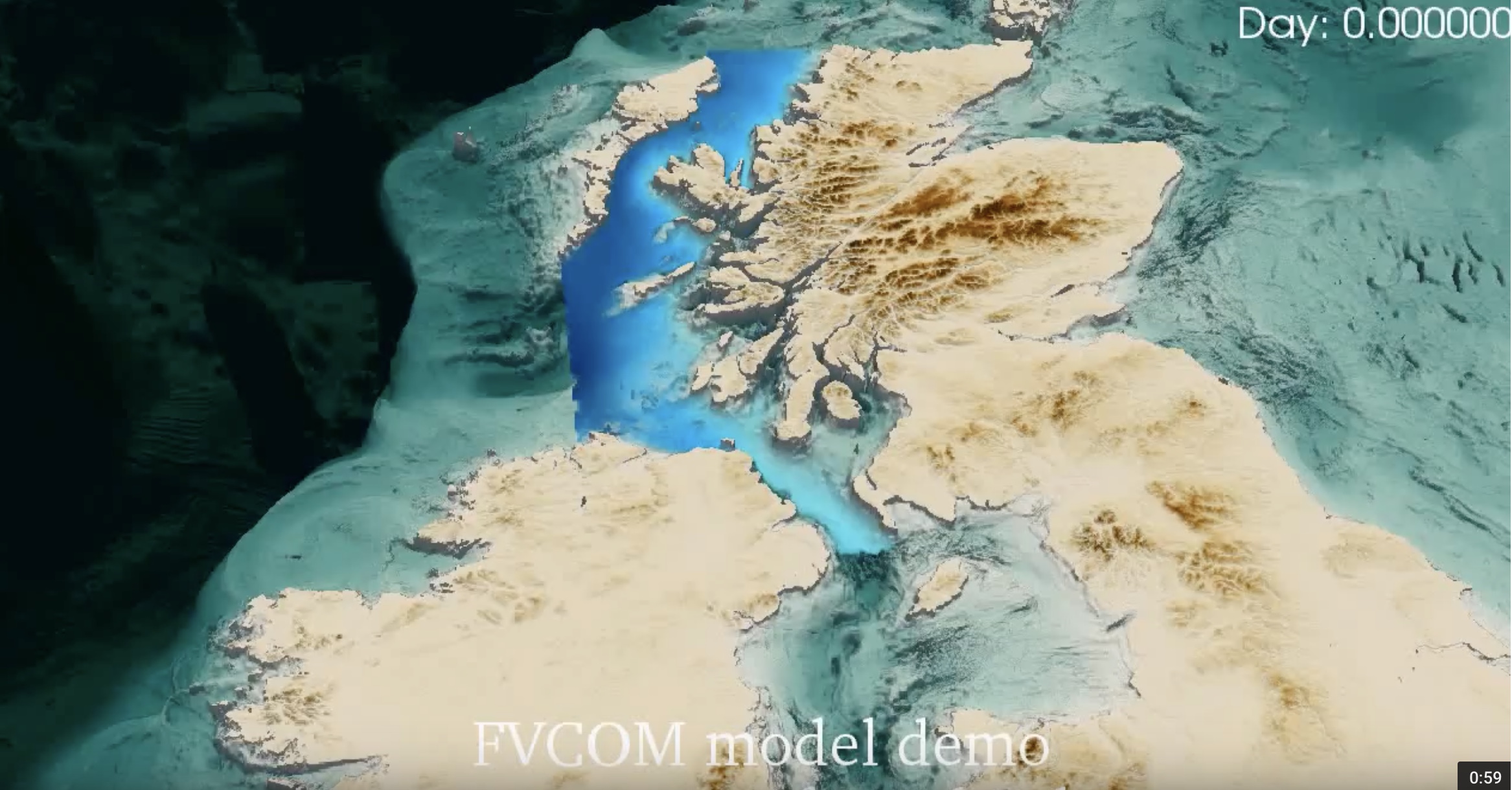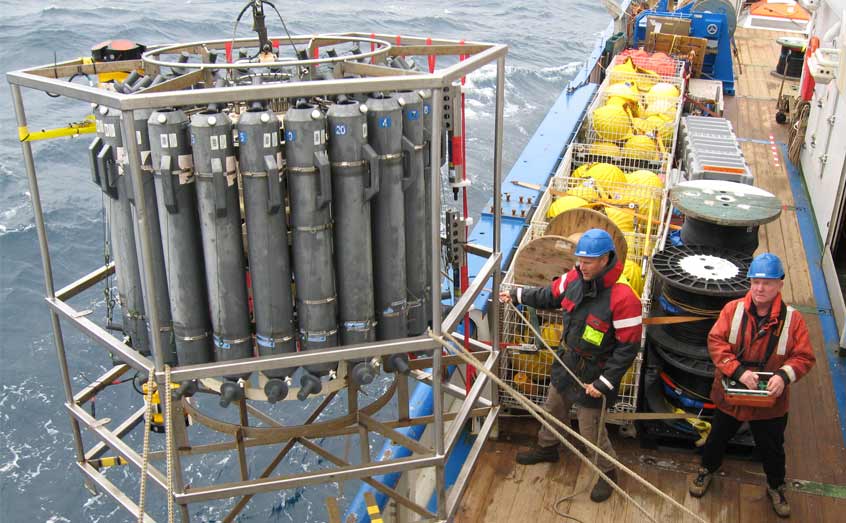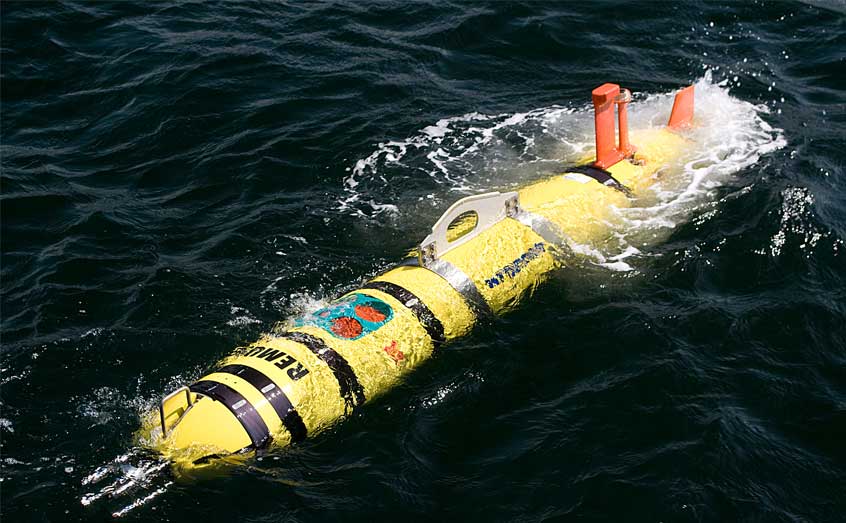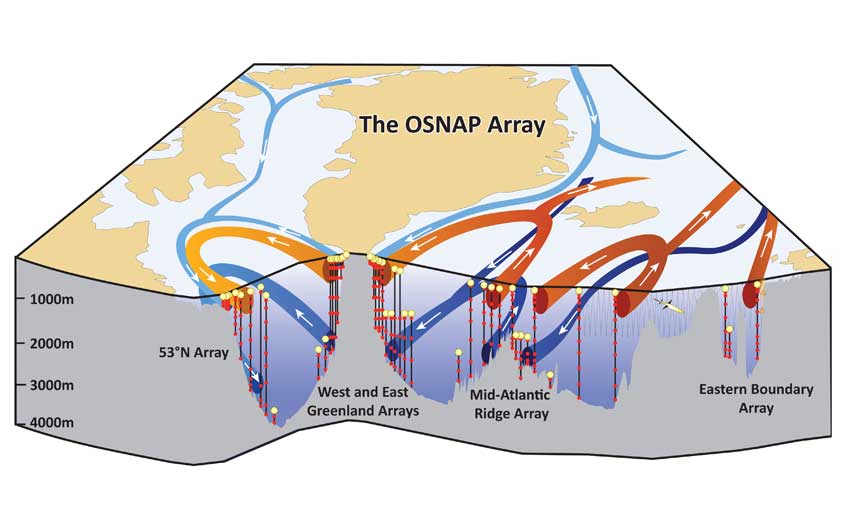Ocean currents influence our climate
SAMS plays a key international role in large-scale and regional ocean observing and confrontation of leading-edge numerical models with these observations.
Our research spans environments from coastal waters to the deep sea and address topics such as the oceans’ role in climate and climate change and oceanic exchanges between the Atlantic and the Arctic. We exploit high resolution numerical models to study the transport and mixing of water on a range of space and time scales, and improve ocean observations through development of new technologies and by applying existing technologies in novel ways.
Oceans determine the rate of change, extent and character of climate by their long-term storage and transport of heat and carbon and dominance of the global fresh-water cycle. SAMS work integrates understanding of ocean systems at all space and timescales and across disciplines, which also allows us to understand how climate variability will impact the ocean’s sustainable resources and the socio economic impact of such change. More on climate change research...
We have particular regional expertise in the European Continental Shelf, North Atlantic and Arctic, where our research interests include the dynamics of open ocean to shelf sea exchanges, the role of the North Atlantic in European climate and climate change, the sea-ice/ocean interface in marginal ice zones, variability in the upper ocean heat and fresh-water distribution, and the detection of oil under sea ice.
Through our ocean monitoring work, SAMS has developed a strong reputation in autonomous systems using Gliders, autonomous underwater vehicles, remotely piloted aircarft and ocean arrays. We use the innovative adaptation and use of technology to undertake sampling, monitoring and assessment of remote or inaccessible marine environments. We have particular expertise in developing real-time communication for ocean observing. Find out more about our robotics capabilities...
